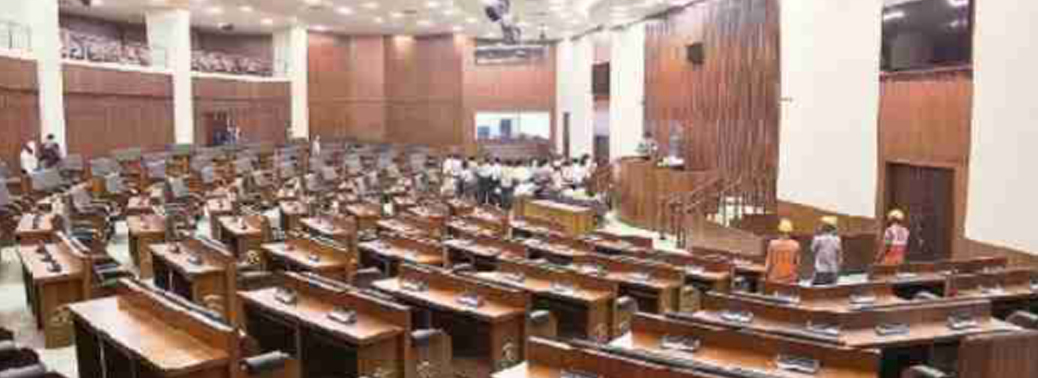ANDHRA PRADESH TO SCRAP LEGISLATIVE COUNCIL
29, Jan 2020

Prelims level : Polity and Governance – State Legislature
Mains level : GS-II Parliament and State Legislatures - structure, functioning, conduct of business, powers & privileges and issues arising out of these.
Why in News?
- The Andhra Pradesh (AP) assembly has passed a resolution to abolish the state’s Legislative Council.
About Andhra Legislative Council:
- Since, the Andhra Pradesh government has passed a resolution to abolish the state legislative council, further it has to send the resolution to the Governor for his approval and then to the Parliament.
- Once the Parliament passes the law to give effect for the resolution, the state legislative council will be dissolved.
- Andhra Pradesh’s Legislative Council was initially set up in 1958 but then abolished in 1985. It was then reconstituted in the year 2007.
States having State Legislative Councils:
- Besides Andhra Pradesh, the other states having Legislative Councils are Telangana, Uttar Pradesh, Bihar, Maharashtra and Karnataka.
- Legislative assemblies of Rajasthan, Assam and Odisha have passed resolutions for the formation of the Council
About State Legislative Council:
Basis for Formation:
- India has a bicameral system of legislature. Just as the Parliament has two Houses, the states can also have a Legislative Council (LC) in addition to the Legislative Assembly through Article 169 of the Constitution.
Abolition and Creation – Article 169:
- The Parliament can abolish a Legislative Council (where it already exists) or create it (where it does not exist) by a simple majority, if the legislative assembly of the concerned state, by a special majority, passes a resolution to that effect.
- Special Majority Implies:
- A majority of the total membership of the assembly
- A majority of not less than two-thirds of the members of the assembly present and voting.
Is Legislative council really beneficial?
- 1.Arguments in Favour of the Formation of the Council:
- The Legislative Council also enables non-elected individuals to contribute to the legislative process.
- An Upper House provides a forum for academicians and intellectuals, who are arguably not suited for the rough and tumble of electoral politics.
- It provides a mechanism for a more sober and considered appraisal of legislation that a State may pass. A Legislative Council can help check hasty actions by the directly elected House.
- Legislative Councils make the governments more accountable.
- The members of Legislative Council through their experience can act as the friend, philosopher and guide of the Legislative Assembly.
- 2.Arguments Against
- The Legislative Council can delay legislation.
- It strains state finances and an unnecessary drain on the exchequer.
- The absence of Legislative council in every state itself suggests the lack of any real advantage, apart from the absence of a broad political consensus on the issue.
- Rather than fulfilling the lofty objective of getting intellectuals into the legislature, the forum is likely to be used to accommodate party functionaries who fail to get elected.
- Another issue is that graduates are no longer a rare breed; also, with dipping educational standards, a graduate degree is no guarantee of any real Intellectual Heft.
Way Forward:
- There has to be a national policy on having an Upper House in State legislatures to be framed by the Union government, so that a subsequent government doesn’t abolish it. There has to be a uniformity and strong policy for its creation, revival and abolishment.
- It argued that the status of Legislative Councils cannot be of temporary in nature depending on the mood of the Government of the day nor can be abolished once created, only at the whims and fancy of a newly elected Government in the State.
- A national consensus must be evolved on the establishment of Legislative Councils.
- The provision in the law for Councils to have seats for graduates and teachers needs to be reviewed.






